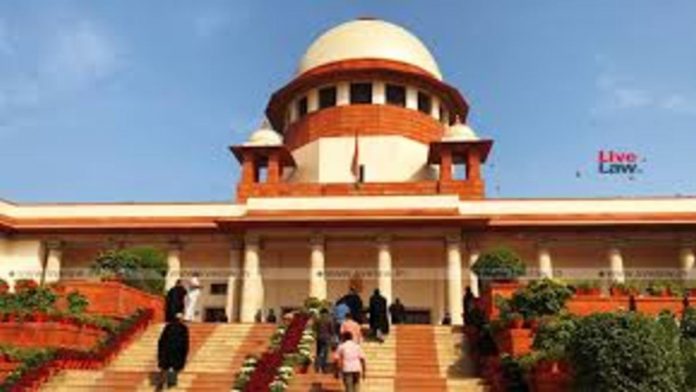The Supreme Court ruled on Tuesday that the term “dowry” should be broadened to include any demand placed on a woman, whether for a property or a valued security of any kind, and that a demand for money to build a house falls within that definition.
A bench of Justices N V Ramana, A S Bopanna, and Hima Kohli ruled that interpreting a statute in a way that defeats the legislature’s aim should be avoided in favour of an interpretation that promotes the goal of the legislation, which is to eliminate a social scourge like dowry.
“In this context the word ‘dowry’ ought to be ascribed an expansive meaning so as to encompass any demand made on a woman, whether in respect of a property or a valuable security of any nature. When dealing with cases under IPC Section 304-B, a provision legislated to act as a deterrent in society and curb the heinous crime of dowry demands, the shift in the approach of the courts ought to be from strict to liberal, from constricted to dilated. Any rigid meaning would tend to bring to naught the real object of the provision. Therefore, a push in the right direction is required to accomplish the task of eradicating this evil which has become deeply entrenched in our society, ” said Justice Kohli, who penned the judgment for the bench.
The court overturned a Madhya Pradesh high court decision acquitting a husband and father-in-law of dowry murder on the grounds that the victim had asked her family members to contribute money to build a house, which could not be considered a dowry demand.
The Supreme Court stated that the deceased’s demand had to be viewed and understood in context, as she was being tortured to get money from her relatives. It stated that the trial court’s order condemning them both for the dowry death was correct. The deceased, who was five months pregnant at the time, set herself on fire in her marital home.
“We are of the opinion that the trial court has correctly interpreted the demand for money raised by the respondents on the deceased for construction of a house as falling within the definition of the word dowry. It cannot be lost sight of that the respondents had been constantly tormenting the deceased and asking her to approach her family members for money to build a house and it was only on their persistence and insistence that she was compelled to ask them to contribute some amount for constructing a house,” it said.
According to the court, the deceased was compelled to make such a financial request to her mother and uncle based on the evidence presented on the record. “It was not a case of complicity, but a case of sheer helplessness faced by the deceased in such adverse circumstances,” the court said in convicting both the husband and his father under Sections 304-B and 498-A IPC and awarding seven years’ rigorous imprisonment, the minimum sentence prescribed for an offence under Section 304-B IPC.
“The above glaring circumstances, when viewed together, can hardly mitigate the offence of the respondents or take the case out of the purview of Section 304-B IPC, when all the four prerequisites for invoking the said provision stand satisfied, namely, that the death of Geeta Bai took place at her matrimonial home within seven years of her marriage; that the said death took place in abnormal circumstances on account of burning and that too when she was five months pregnant; that she had been subjected to cruelty and harassment by the respondents before her death and such cruelty/harassment was in connection with demand for dowry,” the court said.




